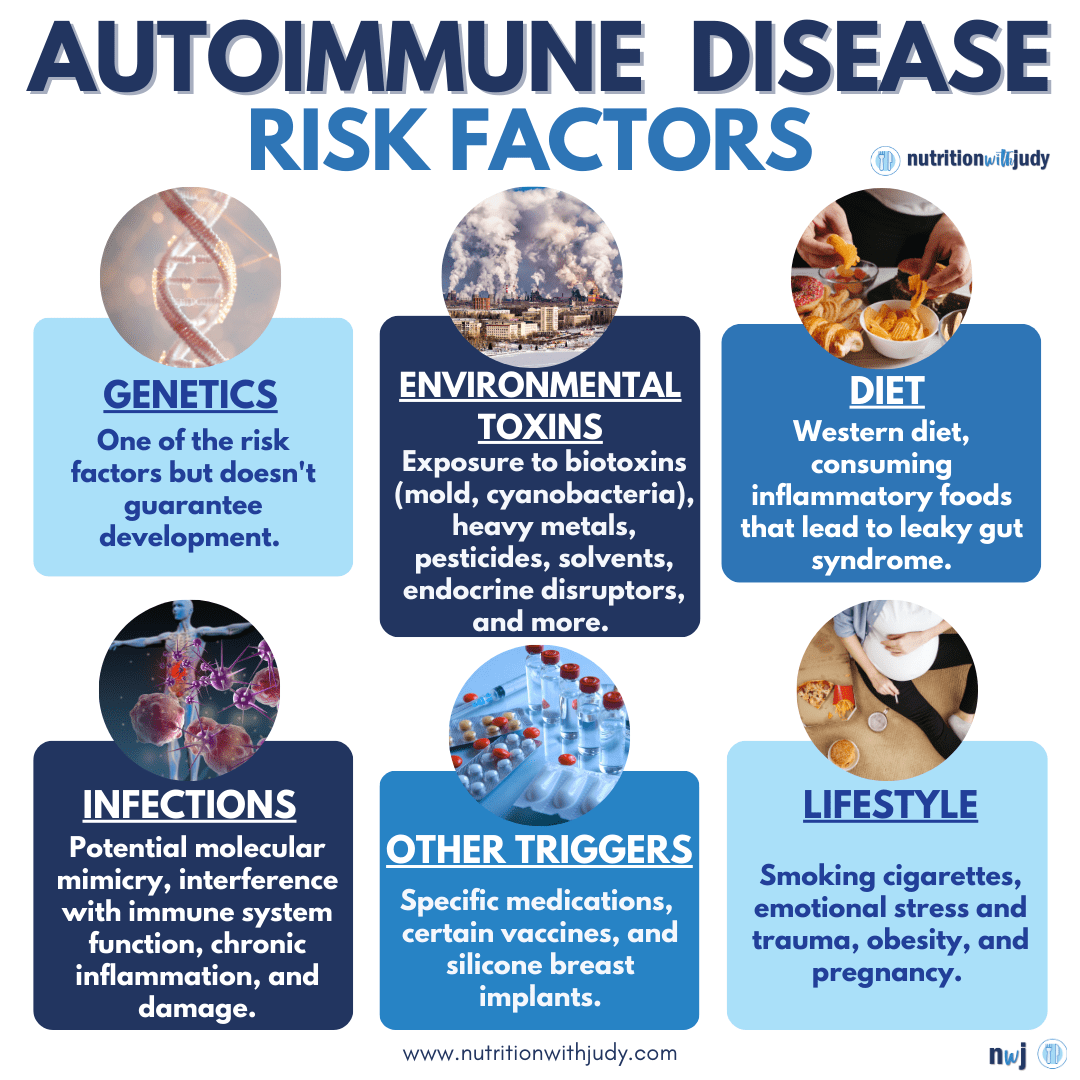Autoimmune Diseases - Identifying and Treating the Root Causes
Written by Dr. Suzanne Tang
June 11th, 2024
Happy Summer!
June always ends up being one of the busiest times of the year for our family; with all the festivities that come with the end of a school year, many beloved family members’ birthdays to celebrate, and loving dads to honor on Father’s Day. This year is an extraordinary year with our firstborn, Chloe, graduating from high school! Some of you may have met Chloe when she interned and worked at my previous clinic. We are so proud of the compassionate, kind, and soulful young woman that she has become. Tears of all kinds of emotions are already flowing as she steps into her next bright and exciting chapter and heads off to the University of Portland’s School of Nursing this Fall! Congratulations to all of the graduates for your amazing efforts! Best wishes as you embark on your next adventure in life!
Speaking of change, we frequently experience change and transition through many phases of our health and lives. Hormones are a perfect example of this change, particularly during puberty, pregnancy, post-partum, perimenopause, menopause, and even throughout the menstrual cycle. Did you know that the fluctuations in hormones play an important role in our immune responses and can influence our susceptibility to developing autoimmune conditions? Let’s take a dive into the causes of autoimmune diseases and naturopathic treatment recommendations to balance the immune system.
If you have been a patient at our clinic then you know that our philosophy of care is steeped in finding the root causes of symptoms and offering individualized plans to address the causes and rebalance your health rather than just treating the symptoms. Ordering comprehensive testing and having them thoroughly reviewed is essential to identifying root causes. Signs and symptoms of fatigue, inflammation, chronic joint or muscular pain, weight gain, hair loss, gut dysfunction, skin rashes, thyroid or adrenal disorders, stress, and/or hormone imbalances warrant autoimmune lab testing to rule out autoimmune disease. For the past 20 years of practice, I have noticed a concerning rise in autoimmune conditions in our patient population.
An estimated 50 million Americans are diagnosed with autoimmune disease, a staggering 80% of whom are women. Autoimmune diseases result when your immune system is overactive, causing it to attack and damage your body's own tissues. Normally, your immune system creates proteins called antibodies that work to protect you against harmful substances such as viruses, cancer cells, and toxins. But with autoimmune disorders, your immune system can't tell the difference between invaders and healthy cells. It is common to have elevated autoantibodies without the presence of disease, however, naturopathic medicine doesn’t wait for the disease state to set it. Rather it seeks to treat and prevent the progression and exacerbation of autoimmune conditions by treating the causes, balancing hormones, modulating immune responses, healing the gut, and regulating inflammation and pain.
Hormonal fluctuations and imbalances significantly influence the development of autoimmunity, particularly in women. Listed below are commonly diagnosed autoimmune conditions in women and their female-to-male prevalence ratios:
Primary biliary cirrhosis 10:1
Sjogren’s syndrome 9:1
Systemic lupus erythematosus 9:1
Hashimoto thyroiditis 5-18:1
Grave’s disease 7:1
Systemic sclerosis 5:1
Myasthenia gravis 3:1
Rheumatoid arthritis 3:1
Multiple sclerosis 2:1
Besides hormonal fluctuations, there are other contributing factors to developing autoimmune conditions:
bacterial infections associated with Lyme disease
viral infections including Covid-19, Epstein-Barr and Lyme
family history of autoimmune disease
inflammatory diet
chronic stress
emotional or physical trauma
gut microbiome imbalances
leaky gut
exposure to environmental pollutants, such as heavy metals, pesticides, and toxins
mold toxicity
over 90 medications including anti-convulsants, antithyroid, and statin drugs
Estrogen in particular plays an important role in the immune system, with both low and high levels influencing immune responses. Estrogen's influence on autoimmune diseases varies, at times offering protective effects, for example for multiple sclerosis, and in other instances contributing or exacerbating disease progression, such as in systemic lupus erythematosus. Thus it is key to identify potential imbalances in estrogen include estrogen deficiency, estrogen excess and estrogen dominance, a state in which estrogen levels are elevated in relation to progesterone.
Hormones, estradiol, cortisol, progesterone, testosterone, DHEA and thyroid panel, glucose, insulin, inflammatory markers, nutrient deficiencies, and autoimmune disease panels are thoroughly checked and if needed, functional stool and adrenal tests and bacterial and viral infections, heavy metals and environmental and mold toxins can also be assessed.
An individualized plan of action is created based on each patient’s needs, which includes the following foundational recommendations to quell the autoimmune response:
Food Intolerance Elimination and Autoimmune Protocol (AIP) Diet that is rich in vegetables, proteins, and healthy fats and minimal in eggs, dairy, gluten, sugar, processed oils and chemicals, alcohol, and caffeine.
Stress Reduction including restorative movement, meditation, breath work, sunlight exposure and if needed counseling and trauma therapy.
Probiotics and Bone Broth to rebalance the microbiome and heal the gut lining.
Anti-inflammatory Herbs and Foods, such as turmeric, ginger, quercetin, and fish oils.
Nutrients that modulate the immune system, including Vitamin D and plant sterols.
Discussion of low-dose naltrexone (LDN), an immune-modulating medication. Results of increasing studies indicate that LDN exerts its immunoregulatory activity by binding to opioid receptors in or on immune cells and tumor cells. These new discoveries indicate that LDN may become a promising immunomodulatory agent in the therapy for cancer and many immune-related diseases.
Dr. Tang’s Recipe Corner
Click HERE for the full recipe!
Scroll down for upcoming events!
Check back in for next month’s newsletter as we dive further into Part 2 of gut health, hormone balance, and autoimmunity!
Yours in Wellness,
Dr. Suzanne Tang, ND, LAc
Inspire Natural Wellness
UPCOMING WELLNESS TALK
We are delighted to announce that we will be delivering monthly workshops on hormones, belly fat, anxiety, and fatigue! Now is the ideal time to learn more about these frequent symptoms that so many of us are experiencing. Not only will you discover that you do not have to suffer, but you will also learn more about us, how we work, our philosophy, and how we are altering the lives of our clients. Seating is limited, so make your reservations early! Click the image below for more information and the opportunity to register!!
Wellness Members-Only Events
Email melissa@wbhteam.com to reserve your members-only spot!








